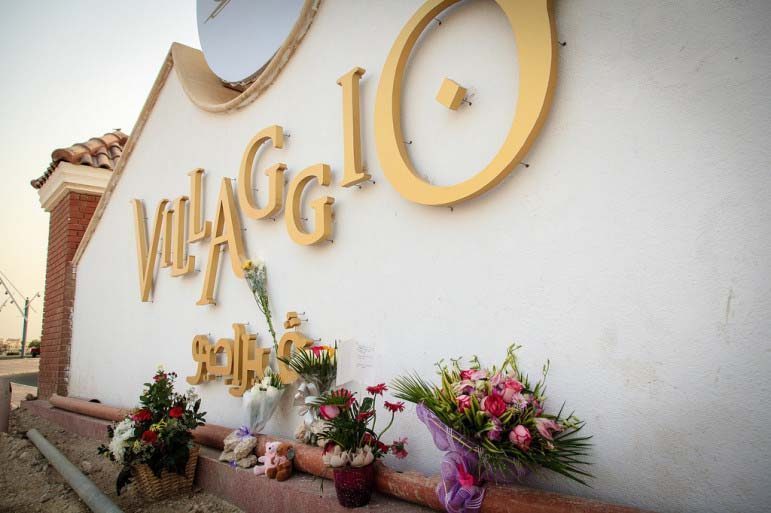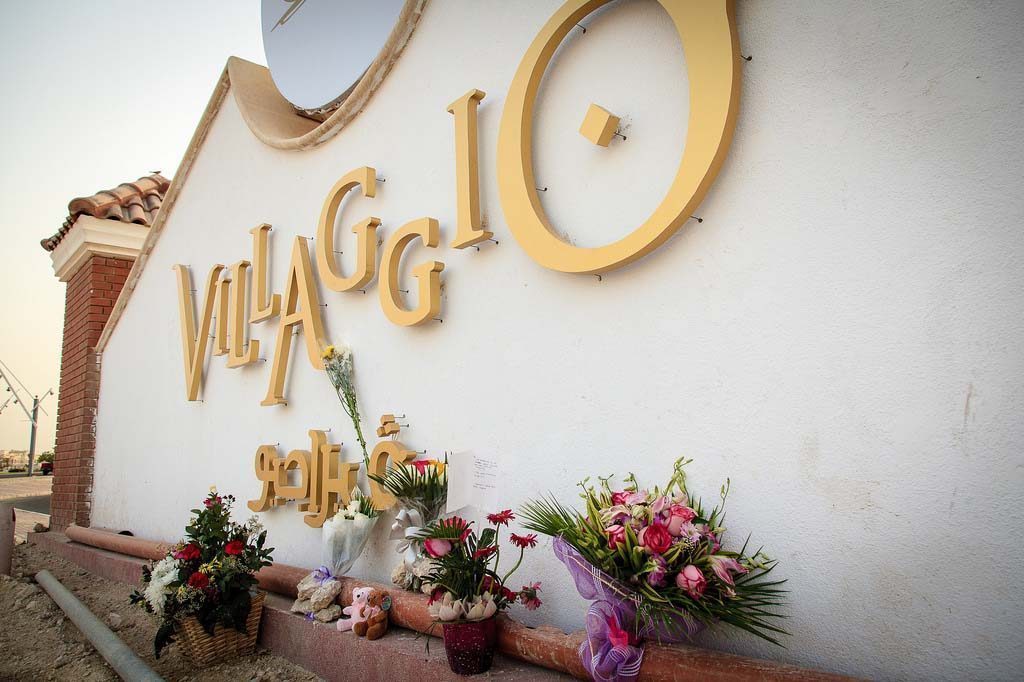
Lawyers and judges gathered in a Qatar courtroom this morning to begin the retrial of five individuals charged in connection with the deadly 2012 Villaggio Mall.
But in a recurring theme of the legal saga that’s lasted more than three years, the proceedings were postponed because several of the defendants are currently outside Qatar and failed to appear in court.
The lawyer for Villaggio chairperson Abdul Aziz Mohammed Al-Rabban told the court that his client was currently traveling with family and was only notified of the scheduled hearing last Thursday.
Similarly, Sheikh Ali Bin Jassim Al Thani and his wife, Iman Al-Kuwari – the co-owners of Gympanzee daycare, where 19 people died during the fire – were also absent. Al Thani is Qatar’s ambassador to Belgium, and his lawyer told the court today that his duties required him to be out of the country.
After being notified of the absences, the judge’s panel led by Esa Ahmad Abou al-Nasr moved to reschedule the hearing to next Monday. However, the panel granted a request by lawyers for more time to prepare and set the hearing for April 24.
Qatar’s Court of Cassation ordered the retrial nearly two months ago.
What happened
The 2012 fire was caused by faulty wiring inside a fluorescent light in the mezzanine of sporting goods store Nike, according to an official inquiry.
As the fire spread, the smoke caused the victims – who included 13 children – to become trapped and suffocate inside Gympanzee, which was located on the upper floor of the mall.

Since then, lawyers and prosecutors have argued over Villaggio’s culpability, disputing the effectiveness of its fire suppression system and the presence of flammable materials in the mall’s construction, as well as whether Gympanzee was properly licensed.
In 2013, four individuals – Al-Rabban, Al Thani, Al-Kuwari as well as the Villaggio manager Tzoulios Tzouliou – were convicted of involuntary manslaughter and sentenced to six years in jail.
Another defendant, municipal employee Mansour Nasir Fazzaa al-Shahwani, was convicted of forgery for providing a license to Gympanzee.

All were acquitted by the Court of Appeal last October, although the company that owns the shopping center was found guilty of involuntary manslaughter.
That meant the firm and its insurance company will still have to pay blood money compensation to the victim’s family as well as a QR20,000 fine.
However, prosecutors had charged Al-Rabban as an individual – not as a representative of his company.
Shifting the charge from Al-Rabban to the firm was one of several errors the Court of Appeal made in interpreting and applying the law, the Court of Cassation said.
Legal errors
The high court ruling – signed by Masoud Muhammad al-Amiri, the head of the Court of Cassation – agreed with all of the prosecutor’s arguments for a retrial, according to a copy recently obtained by Doha News.
It said the Court of Appeal was wrong to exclude testimony of three Gympanzee employees solely because they had not appeared as witnesses during the lower court trial. In Qatar, the Court of Cassation wrote, there is nothing written in the law that requires witnesses to appear at every stage of a court case.
Similarly, the Court of Cassation said there is nothing in the law that states a written piece of evidence should trump oral testimony, as the Appeal Court reasoned when it ruled that Gympanzee was a children’s play area – as stated on its licence – rather than a daycare, which prosecutors allege Al Rabban told them in his pre-trial interview.

The distinction matters, family members have previously told Doha News, because Civil Defense officials could have worked to rescue the young children more quickly had they known they were inside when the fire first broke out.
Additionally, the onus on Gympanzee was lower because rules for activity centers are more lenient than for nurseries. For example, activity centers can be located on an upper story of a building, for example.
The Court of Cassation also said it was wrong to toss out testimony given by family members of the victims. The Court of Appeal had ruled their statements were inadmissible because the witnesses were also plaintiffs in the case.
That’s wrong, the Court of Cassation ruled. The family members may be plaintiffs in a separate civil case, but it’s the prosecutor who is arguing the case against the defendants in the criminal trial.

The Court of Cassation also agreed with prosecutors that the Court of Appeal applied the wrong sections of the law when it found no fault with Villaggio’s fire suppression system.
It acquitted the defendants because there was no evidence that the system had been deliberately damaged or disabled even though the actual accusation was that the defendants failed to properly maintain it.
Finally, the Court of Appeal acquitted al-Shahwani because he had no criminal intent when he renewed Gympanzee’s license without visiting the facility as required – something Court of Appeal said was common practice.
But the Court of Cassation ruled that was irrelevant. Issuing a license that requires a physical inspection without actually seeing Gympanzee is a form of cheating and considered forgery, the ruling states.
Thoughts?







